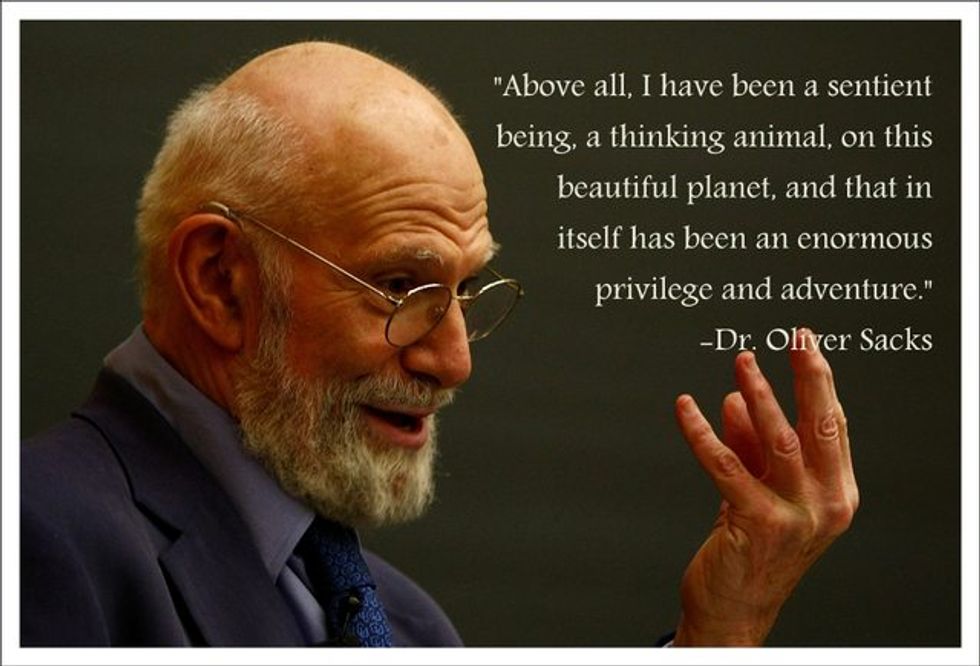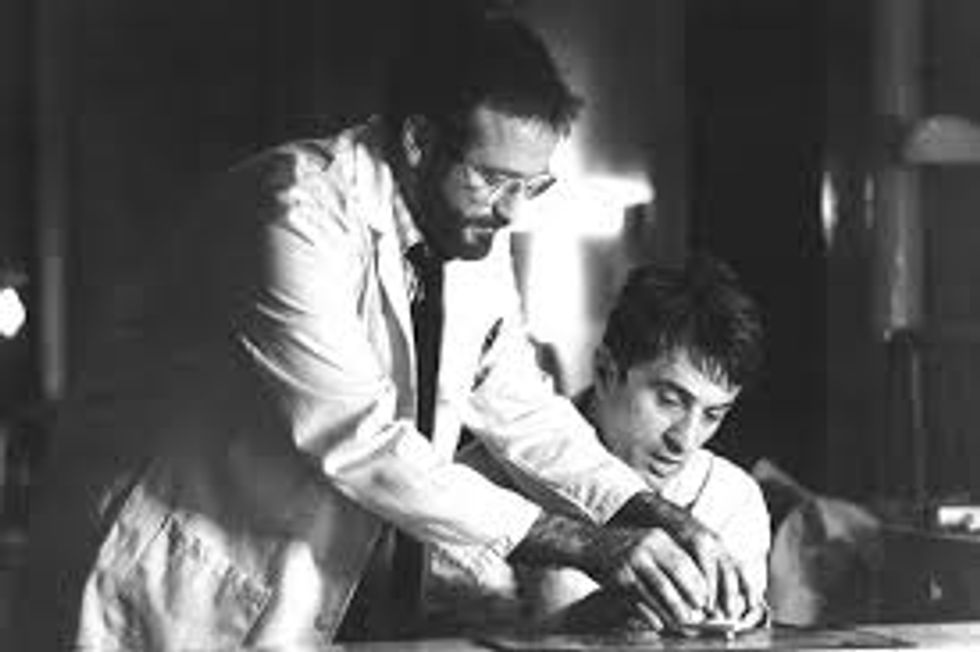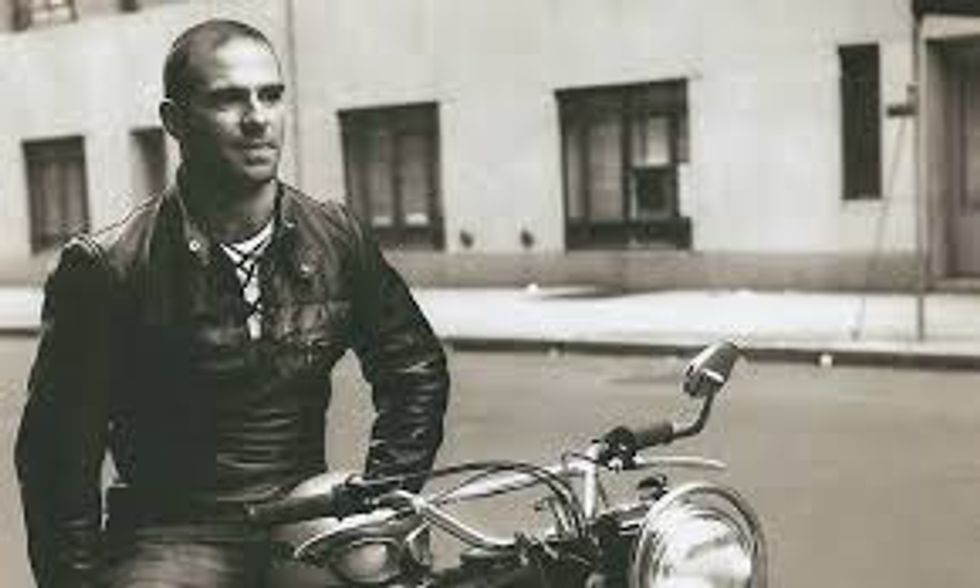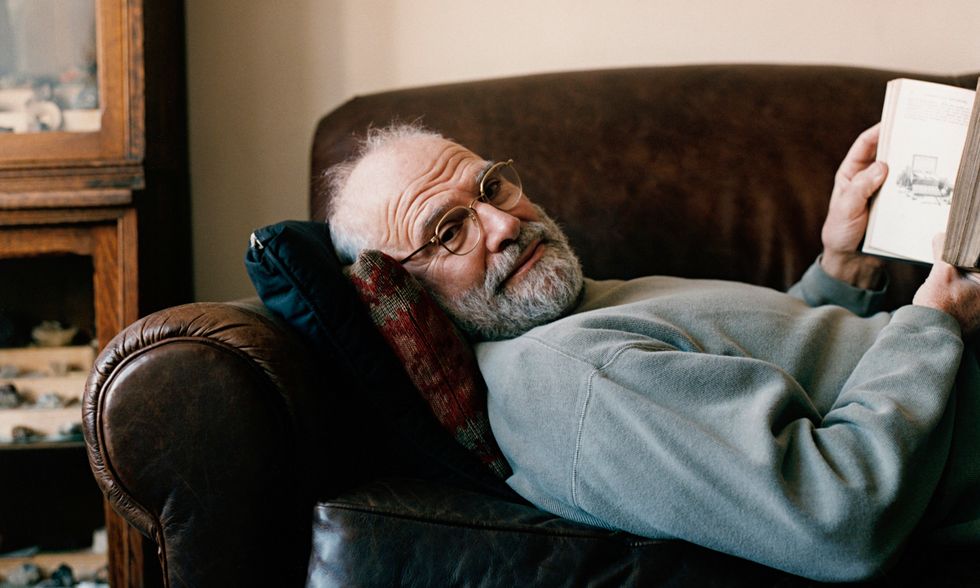Oliver Sacks was one of the first of his kind. At a time when medicine’s sole focus was on only combatting a biological problem, he was able to view neurological diseases as something entwined with the identity of a person and treated his patients with the human respect they were often denied. He is well known for his “neurological novels” which fill best selling books such as "The Man Who Mistook His Wife for a Hat"and was able to introduce diseases like Tourettes and Autism to the general public in a way that called for compassion instead of revulsion. Dr. Sacks had announced in February that a metastatic melanoma had spread to his liver and the count down had begun. Unfortunately, time ran out on August 30th, 2015.
A passionate and inventive man, Sacks would treat patients other doctors had long given up on. “I love to discover potential in people who aren’t thought to have any,” he told People magazine in 1986. Using his gift for writing, Dr. Sacks was able to transform clinical notes and scribbled prescriptions, into complex and full characters. One of his most famous works, “Awakenings,” inspired a movie staring Robin Williams and Robert De Niro. The book chronicled his work on catatonic patients who were awoken using the new drug L-dopa.
He was able to invoked empathy in his readers and sparked a new type of treatment for psychological patients. He objected the accepted practice of cruel forms of treatment such as straitjackets and forcing “uncooperative patients” into isolation rooms where they could sit in their own fecal matter for days. He was one of the first to say that patients should be treated with dignity instead of simply as a by-product of an experiment, forever altering the medical community.
The youngest son of two London doctors, Dr. Sacks grew up loving chemistry and yearning for answers about the world around him. After obtaining his medical degree from Queen’s College he moved to California for his residency and enjoyed the fast paced life the California cultural offered. He detailed his escapades in “On the Move: A Life,” and also discussed for the first time, what it was like realizing he was gay when he was a teenager. He revealed that upon telling his mother, she had said: “I wish you had never been born.” After a few flings and 35 years of celibacy, he found love with writer Billy Hayes. At a time in American history when being homosexual was seen as morally wrong, and unprofessional, Dr. Sacks was able to be cross those malicious stereotypes and be revered in the scientific community. What’s been inspiring to see is that no one really discusses Dr. Sack’s sexuality, because it in no way deters or changes who the man was and what he contributed to the field of neuroscience.
At a time when we all seem to be at war with each other, whether it’s racial or religious conflicts, political issues, or anything else we can find to hate in another person, the death of Oliver Sacks reminds us that we should all be united in love for our fellow humans. As terrifying at it is, we all die one day. The rich, poor, famous, and silent all leave this world. We should all aspire to leave it with the memory of our kindness and love, much like Dr. Sacks did. Many people will not remember that he was one of the firsts to use L-dopa effectively, or exactly how many bestsellers he penned. They will, however, remember how he treated people with love and respect.
“When people die, they cannot be replaced,” Sacks wrote for the Times. “They leave holes that cannot be filled, for it is the fate — the genetic and neural fate — of every human being to be a unique individual, to find his own path, to live his own life, to die his own death.”
You will be greatly missed, Dr. Sacks.





















